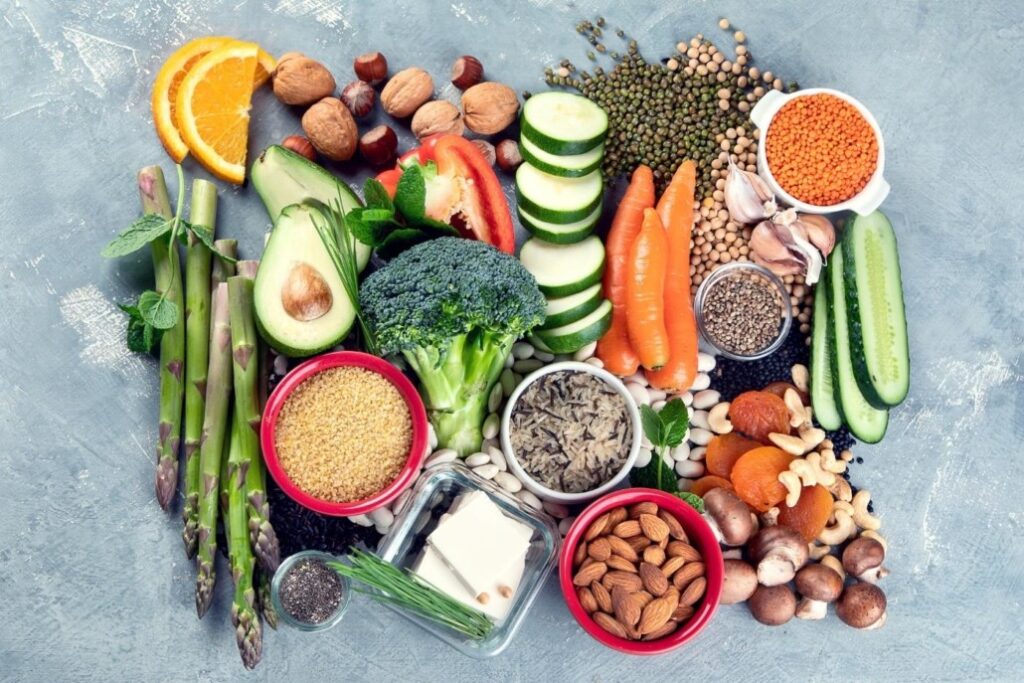The Rich Tapestry of Russian Cuisine
Russian cuisine is as diverse as the country itself, offering a wide array of flavors and textures. It’s a delightful fusion of culinary traditions influenced by the harsh climate, abundant natural resources, and the cultural diversity of the region. From the creamy comfort of stroganoff to the savory satisfaction of shashlik (grilled skewered meat), Russian food is a true gastronomic adventure.

Nutritional Value of Russian Food
Russian cuisine emphasizes the use of fresh and seasonal ingredients. Many dishes are rich in vitamins and minerals, making them not only delicious but also nutritious. The incorporation of grains, vegetables, and dairy products provides a balanced diet, while the inclusion of hearty meats ensures a fulfilling meal.
Traditional Russian Dishes
Borscht: The Beetroot Wonder
Borscht, a hearty beetroot soup, is a staple in Russian food households. Packed with vitamins and antioxidants, it’s not only a treat for the taste buds but also great for your health. The vibrant red color and robust flavors make it an iconic dish.
Pelmeni: Little Dumplings of Delight
Pelmeni, Russian food dumplings, are a beloved comfort food. These bite-sized pockets of joy are typically filled with meat and served with sour cream or butter. They are easy to make and a crowd-pleaser at gatherings.
Blini: The Versatile Russian Pancake
Blini, thin Russian pancakes, are incredibly versatile. They can be served with sweet or savory toppings, making them suitable for any meal. Blini are a symbol of celebration in Russia and are commonly enjoyed during festivals.
A Culinary Journey Through the Seasons
Russian cuisine adapts to the changing seasons, utilizing seasonal ingredients to create dishes that resonate with the time of year.
Winter Comfort Foods
During the cold winter months, hearty soups and stews take center stage. Dishes like solyanka (a spicy, sour soup) and kasha (buckwheat porridge) warm both body and soul.

Springtime Freshness
As spring arrives, Russians savor fresh greens, mushrooms, and fish. Dishes like shchi (cabbage soup) and zharkoye (a hearty meat stew) incorporate these seasonal delights.
Summer Delights
Summer brings an abundance of fresh vegetables and berries. Salads like olivye (potato salad) and desserts like medovik (honey cake) highlight the bounty of the season.
Autumn Harvest Feasts
With the arrival of autumn, Russians indulge in dishes featuring root vegetables and game meats. Traditional recipes like okroshka (cold soup) and venison stews are enjoyed.
Russian Food and Health
The balanced nature of Russian cuisine, with its focus on fresh ingredients and homemade preparation, contributes to overall well-being. The use of fermented foods like kefir and sauerkraut promotes gut health, while the moderate consumption of red meat aligns with a balanced diet.
The Joy of Sharing: Russian Dining Culture
Russian dining is not just about the food; it’s about the experience of togetherness. Russians have a strong tradition of communal dining, where meals are a time for family and friends to connect. The famous Russian saying, “Guests are sent by God,” reflects the warm hospitality that accompanies Russian meals.

Russian Food Beyond Borders
The love for Russian food extends beyond Russia’s borders. Russian foodrestaurants and food festivals can be found in many countries, allowing people from diverse backgrounds to savor the flavors of this intriguing cuisine.
How to Enjoy Russian Cuisine at Home
Exploring Russian cuisine at home can be a delightful adventure. With the right ingredients and recipes, you can create authentic Russian dishes in your own kitchen.
Cooking Tips and Tricks
To master Russian cooking, consider these tips and tricks:
- Invest in quality cookware.
- Experiment with different varieties of Russian bread.
- Don’t shy away from using dill—it’s a staple herb in Russian cooking.
- Be patient when making dough-based dishes like pelmeni and blini.
Exploring Russian Beverages
Russian cuisine isn’t just about food; it’s also about beverages. Vodka, kvass (a fermented beverage), and various herbal teas play a significant role in Russian dining culture.
A Taste of Russia: Culinary Tourism
For those who want to immerse themselves in Russian food cuisine, culinary tourism is a fantastic option. Visiting Russia allows you to taste the authenticity of local dishes and explore regional specialties.
Conclusion
Russian food is a treasure trove of flavors, offering not only culinary delight but also a glimpse into the culture and traditions of this vast nation. Whether you’re indulging in borscht’s vibrant red or savoring the comfort of pelmeni, Russian food cuisine is a journey worth taking.

Frequently Asked Questions
1. Is Russian food only about heavy and hearty dishes?
No, Russian cuisine offers a variety of dishes, including lighter options with fresh vegetables and herbs, suitable for different seasons and preferences.
2. What are some popular Russian desserts?
Popular Russian desserts include medovik (honey cake), piroshki (sweet pastries), and vareniki (sweet dumplings).
3. Can I find Russian restaurants outside of Russia?
Yes, Russian restaurants can be found in many countries, making it accessible for people around the world to enjoy Russian cuisine.
4. Are there vegetarian options in Russian cuisine?
Yes, Russian cuisine offers vegetarian dishes, such as vegetable soups, salads, and dishes made with mushrooms and grains.
5. How can I learn to cook Russian food at home?
You can find authentic Russian recipes online and in cookbooks. Start with simpler dishes like blini and progress to more complex ones as you gain confidence in your cooking skills.


